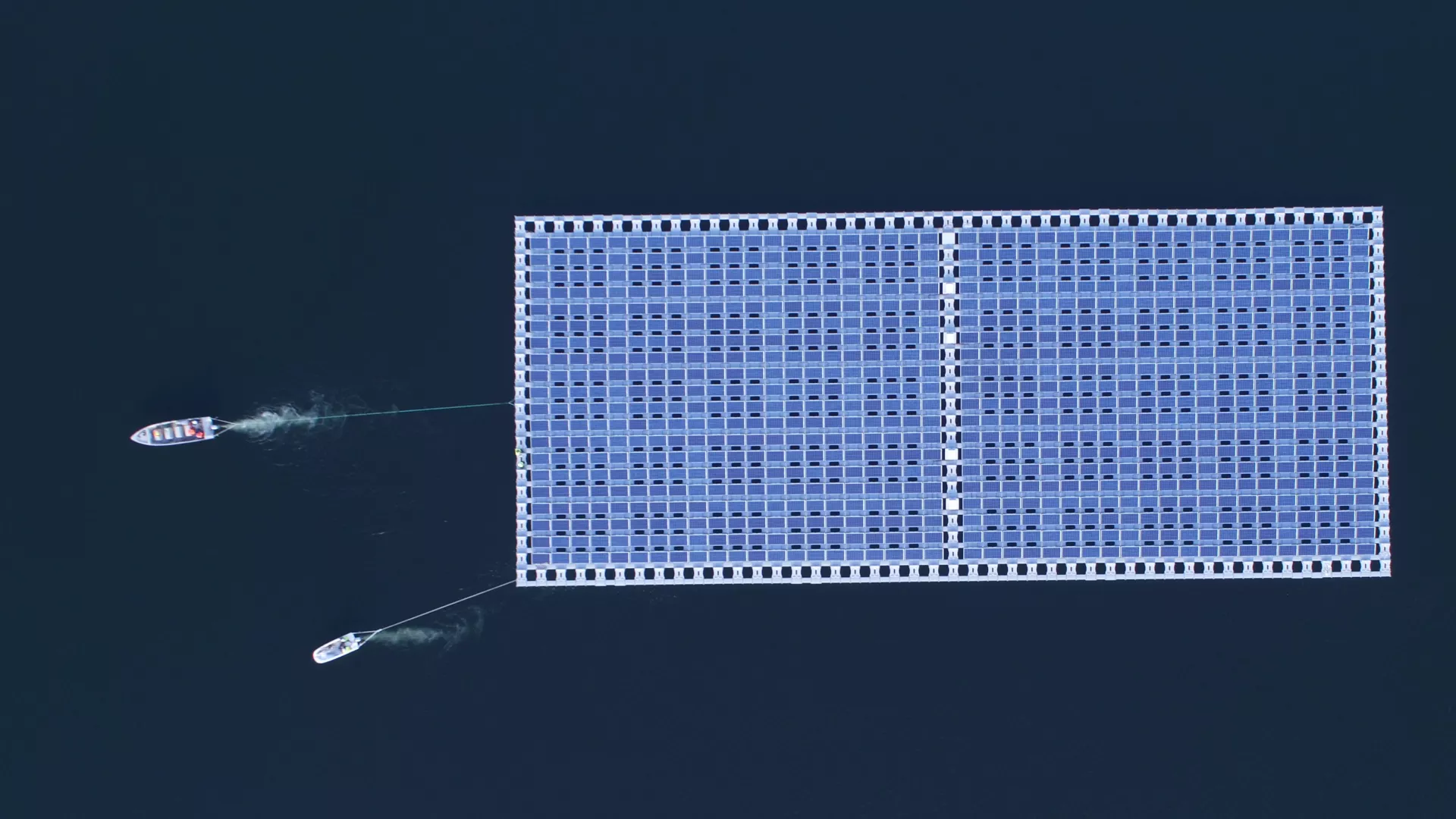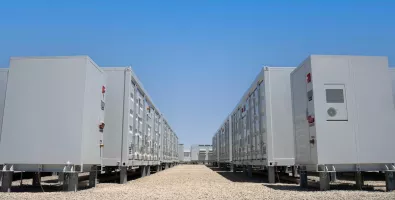
Construction of EDP floating solar park in Alqueva approved
It is one of EDP's most innovative solar energy projects - a floating farm with more than 12,000 photovoltaic panels in the Alqueva dam reservoir - and it has just received the final license to start the installation process. Works are expected to commence in summer and the company believes the farm will start producing energy as early as by the end of this year. With an annual production capacity of 7 GWh, the park is expected to produce enough energy to supply 25% of consumers in the region (Portel and Moura).
The projected solar farm, which also features a battery storage system, involves an investment of about €4 million and will be part of Alqueva plant, a pumped hydropower plant with one of the largest energy storage systems in the country. This project is being designed with a hybrid operation model, as the pumping system makes it possible to use solar and wind power in times of lower consumption to pump water from the reservoir and thus reuse it to produce new hydroelectric power.
Alqueva will therefore become a kind of living laboratory by allowing the company to test the complementarity between dispatchable (hydroelectric) and non-dispatchable (photovoltaic) renewable energy production technologies, as well as long-term (pumping) and short-term (battery) storage technologies. With 1 MW power and a storage capacity of about 2 MWh, the battery will feature lithium-ion technology, which is already widely used in the electricity sector worldwide.
Almost five years after the successful pilot project in Alto Rabagão (840 panels), EDP will now commence the installation of this larger scale farm - and in complete alignment with the company's overall strategy, which involves boosting investment in innovation and renewable energy projects in order to become a fully green company by 2030. Moreover, this project complies with the objectives of the Portuguese Government's Roadmap for Carbon Neutrality 2050, as it seeks to maximize the use of clean energy in the system and exploit the capacity of existing grid connections.
Less impact, greater efficiency
The Alqueva project also stands out for its environmental benefits, starting with the exploitation of an unused water mirror area that will not suffer any changes with the installation of these floating panels. Moreover, the production of electricity in floating plants benefits from favorable temperatures, especially during periods of heightened exposure to the sun and the wind. Lower temperatures near water surfaces make it possible to reduce the temperature of photovoltaic panels themselves, thus improving their efficiency; in the case of Alto Rabagão, such improvement reached 10% compared to equivalent fixed and onshore solutions.
On the other hand, the project's integration with a power plant with existing grid connections obviates the construction of new transmission and distribution lines and the consequent occupation of soil. In this case, hybridization could allow the doubling of the energy drained at the same point, without the need to increase the capacity of the line. All these environmental benefits have been pointed out in the project's Environmental Impact Study, which has been included in the evaluation and licensing process.
With this innovative project EDP will increase its installed renewable energy capacity, which currently stands at 19 GW - accounting for about 80% of the total and on the way to 100% by 2030. Renewable energy will therefore be decisive in this energy transition process, with an overall investment of €19 billion over the next five years, for an additional capacity of 20 GW.
Alqueva floating solar farm in numbers
- Number of panels: 12,000
- Platform size: 4 ha
- Installed Power: 4 MW
- Annual energy production: 7 GWh (~25% of houses in the region)
- Reservoir depth: 70 m
- Water plane oscillation: 23 m
EDP Spain initiatives for waste reduction
A new concept: Circular Economy
Demand for the planet’s resources exceeds the Earth’s replenishing capacity; moreover, industrialized countries have developed consumption profiles that in many cases make them dependent on other countries' resources, thereby exposing them to high prices and market volatility.
At the EU level, this problem has led the European Union to devise a strategy for attaining a more efficient resource consumption model.
This strategy, known as Strategy Towards a Circular Economy, will promote competitiveness, innovation and environmental protection, contributing to economic growth and job creation.
Circular economy requires different interventions at different stages of the product’s life cycle: from raw material extraction and product design to product distribution, consumption, repair, reuse, recycling, and waste management. All these stages are interconnected, and they all require specific measures to improve energy and and resource efficiency. Action is also required from the demand side, which means that the Strategy also involves the creation of innovative solutions and new markets.
In the near future, these EU policies will be translated into guidelines for all Member States, which in turn will convert them into operational requirements for all industry operators and action guidelines for society in general.
EDP is currently studying a strategy for the implementation of Circular Economy throughout its production cycle; the first step consisted in conducting a pilot analysis (in the Portuguese context) of the existing materials (receipts, issues and stock levels), in order to identify the main resources used by the different business units and define possible guidelines to optimize their use and the search for viable alternatives.


